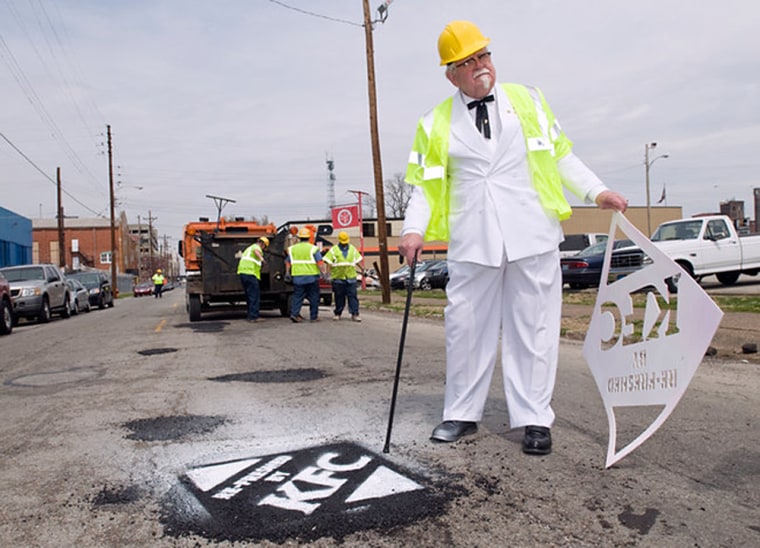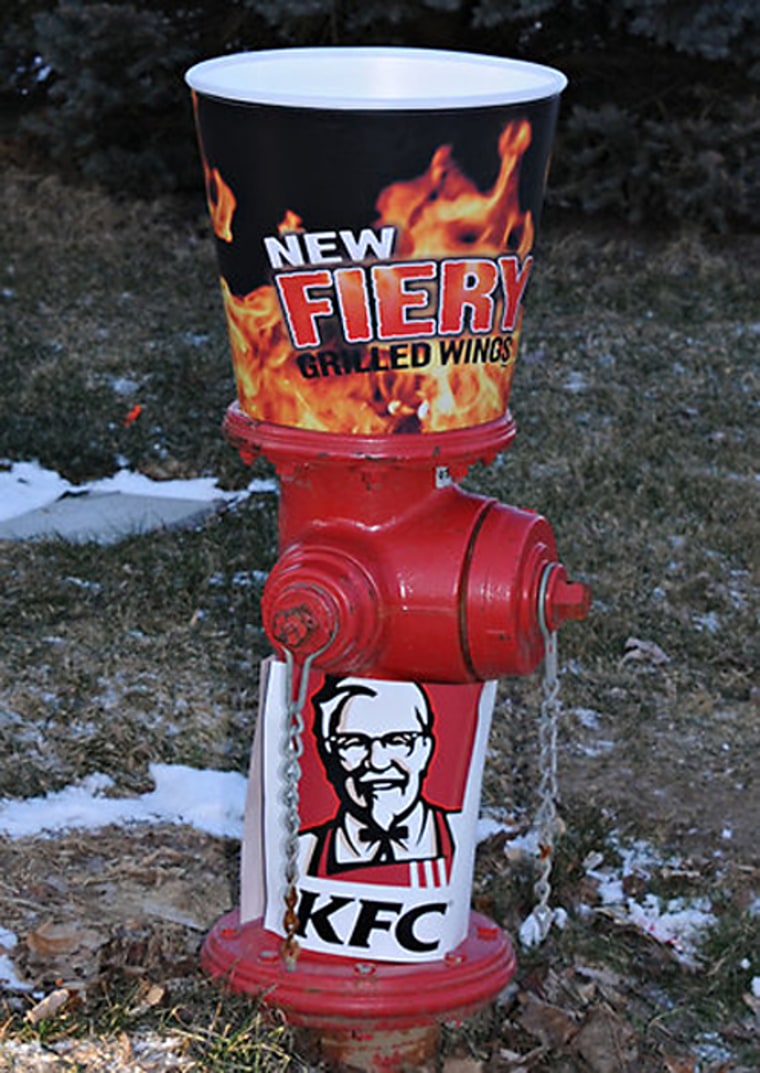Should this city’s red fire trucks be transformed into rolling billboards?
After Baltimore officials made the wrenching decision to close three fire companies later this summer, the City Council initially sought to avert the cuts with a new money-raising strategy: it passed a resolution this month urging the administration to explore selling ads on the city’s fire trucks.
It is far from clear whether corporate logos will be painted on Baltimore’s fire engines any time soon. Officials in Mayor Stephanie Rawlings-Blake’s administration have expressed doubts about whether the proposal would generate enough money to keep even one fire company open.
But in exploring the option, Baltimore is joining dozens of other financially struggling cities, transit systems and school districts around the country that are trying to weather the economic downturn by selling advertisements, naming rights and sponsorships to raise money.
Such marketing schemes have long been used by sports teams and some arts organizations. But now, straphangers in Philadelphia buy fare cards blazoned with ads for McDonald’s and ride the Broad Street Line to AT&T Station (formerly Pattison Station), where the turnstiles bear the company’s familiar blue and white globe.
KFC became a pioneer in this kind of unconventional ad placement earlier in the downturn, when it temporarily plastered its logo on manhole covers and fire hydrants in several cities in Indiana, Kentucky and Tennessee after paying to fill potholes and replace hydrants.
Pizza chains now advertise on some school buses, as a growing number of states consider allowing school districts to sell ads. The Baltimore City Council member who wrote the legislation urging the city to sell ads on fire trucks, William Welch, said he was simply trying to find a way to help the city meet its growing needs in a time of dwindling revenues and support.
“As I’ve looked at budgets, they get bigger with less support from the federal and state governments,” Mr. Welch said. “And we can’t tax people out of existence. We’re trying, our mayor’s trying, to bring 10,000 more people back to Baltimore city. And if you have an increasing fee or tax structure, you’re not going to be able to do that. So you have to create alternatives.”
But some fear that accepting ads could send the wrong message. When the town of Tyngsborough, Mass., recently considered selling ads to raise money for its fleet of police cars, Chief William F. Mulligan had concerns.
“Because of what we do, we like to be neutral,” he said. “Say there were two shopping plazas, and one advertised and one didn’t. Would that company feel like we weren’t treating them fairly?” The proposal was ultimately rejected.
'Co-opted by the private sector'?
Even before the recession, the small police department in Littleton, Mass., started an “advertise with the good guys” program that raised money from a local supermarket chain to pay for new police cars in exchange for ad space on their fenders and trunks. Minneapolis ran antismoking ads on the hose covers of some fire trucks. In Phoenix, local health care providers sponsor safety messages on several fire trucks, with the proceeds going to a charity run by the firefighters’ union that helps the victims of fires, local children and the poor.
Rescue helicopters could get ads, too. With budget cuts threatening to ground the Onondaga County Sheriff’s Office helicopter in Syracuse, officials there hope to sell ads on it to keep it flying. “Some people think it’s a great idea to help support public budgets,” said John Balloni, a chief in the sheriff’s office, “and some people are a little put off by the idea that we’re getting sponsorship for what used to be a government duty, if you will.”
The downturn seems to have prompted more public entities to sell advertising or auction off the naming rights of public places, said Elizabeth Ben-Ishai, the campaign coordinator for the Public Citizen’s Commercial Alert project, which works to curb the spread of commercialization. “We are bombarded by ads everywhere we go, and these are public spaces meant to be reflective of the values of our society, co-opted by the private sector,” she said.
Transit systems across the nation have been particularly aggressive in recent years in trying to sell the naming rights of stations. They are struggling with an estimated $77.7 billion shortfall just to get to a state of good repair, at a time of growing ridership, shrinking state support and budgetary shortfalls.

In Brooklyn, new signs went up last month at the Atlantic Avenue subway stop bearing a sponsored addition to its name: Barclays Center, for which the Metropolitan Transportation Authority is being paid $4 million over 20 years. Cleveland recently named its new Bus Rapid Transit system the HealthLine after it received $6.25 million over 25 years from the Cleveland Clinic and University Hospitals. (“The HealthLine is not a number to call for free medical advice, any more than Quicken Loans Arena is where you go to take out a loan,” its Web site notes.) And last month the Chicago Transit Authority began the process of selling the naming rights of 11 “L” stations.
'Time to make a decision'
Such naming deals have grown more popular with advertisers as they try to reach consumers who have grown more adept at tuning out commercials, whether with remote controls or digital video recorders.
“All we’re ever looking for is not only to do something good for the community, but to find another place for eyeballs to be looking at things,” said Jody Berg, the principal of Media Works, a communications company based in Baltimore, who added that the city could find appropriate sponsors in fields like health care, education, sports or insurance.
But the ads would have to raise a great deal of money to avoid the fire company closings, which are expected to save the city more than $6 million a year.
It was three years ago that Baltimore began closing a few different firehouses each day — known as “rotating closures” or “rolling brownouts” — in what officials hoped would be a temporary move to tide them over until better times arrived. But with economic times still tough and no indication that the city will be able to afford to keep all of its 54 fire companies open any time soon, fire officials said it would be better to choose three to close permanently, giving them the predictability and stability they need to make plans to keep the city covered.
“Back in ’09, we thought maybe this will last a year,” Fire Chief James S. Clack said. “It’s been three years. Our finance folks are telling us that the budget is not going to get significantly better for several more years. So it’s time to make a decision.”
At a hearing last week in the city’s ornate Council chambers — its marble and brass a reminder of a more opulent age — neighbors expressed anxiety at the thought of losing fire protection, as union officials told of a young man having a heart attack who had been saved by one of the companies scheduled to close that morning. Members of the Council expressed grave misgivings about closing the companies for good.
Even if the plan to sell ads on fire trucks fizzles, ads and sponsorships will most likely be coming to Baltimore soon: last week the city began seeking an advertising company to help it sell naming rights and ads and other sponsorships for city buildings, recreation centers and parks.
This story, "Your Ad Here, on a Fire Truck? Broke Cities Sell Naming Rights," originally appeared in The New York Times.
